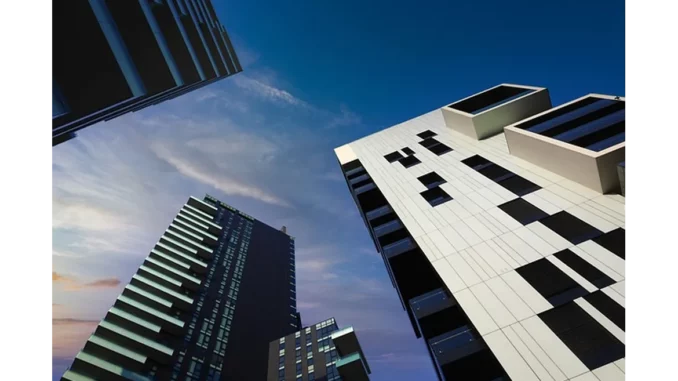
In recent years, the real estate sector has undergone a significant transformation, largely driven by the increasing emphasis on sustainable development. This shift is primarily propelled by a heightened awareness of environmental, social, and governance (ESG) factors, which have become central to both development practices and investment strategies. No longer a mere trend, sustainable real estate development is now a pivotal component of value creation and risk management within the industry, reflecting a broader movement towards creating resilient, environmentally-friendly spaces that meet the evolving demands of tenants and investors alike.
Focus360 Energy: property compliance services – pre-planning to post-construction. Learn more.
The momentum behind sustainable real estate development is fuelled by a variety of factors, including changing consumer preferences, mounting regulatory pressures, and an urgent need to ensure long-term resilience. Today’s tenants are more discerning, increasingly opting for environments that reflect their commitment to sustainability. This shift in demand has compelled companies to focus on reducing their carbon footprints and operational costs. Developers, in response, are adopting green building practices that incorporate energy-efficient designs, renewable energy sources, and sustainable materials. The benefits of these practices are apparent, as green-certified buildings are shown to achieve higher occupancy rates, command premium rents, and incur lower operating costs compared to traditional structures. These advantages make sustainable real estate development an appealing prospect for investors interested in stable, long-term returns.
ESG considerations have become a cornerstone of investment strategies in the real estate market. Investors are becoming acutely aware of the financial and reputational risks posed by neglecting sustainability issues. Properties that do not meet sustainability standards are at risk of regulatory penalties, inflated operating costs, and diminished tenant interest. Consequently, institutional investors are increasingly integrating ESG criteria into their decision-making processes. They are prioritising assets that exhibit resilience to climate-related risks, demonstrate energy efficiency, and uphold social responsibility. This strategic shift is not solely about mitigating risk; it is also about seizing new opportunities. Sustainable properties are viewed as forward-thinking investments that resonate with the values of environmentally-conscious tenants and investors.
The regulatory environment surrounding sustainable real estate development is rapidly evolving. Governments worldwide are enacting more stringent building codes and performance standards aimed at reducing carbon emissions and enhancing energy efficiency. Within the European Union, regulations such as the Sustainable Finance Disclosure Regulation (SFDR) and the EU Taxonomy are establishing new benchmarks for sustainable investments. While compliance with these regulations can be resource-intensive, it also offers significant opportunities for developers and investors. Adhering to sustainability standards can unlock access to green financing options, tax incentives, and a wider range of potential tenants. Furthermore, compliance bolsters the reputation of real estate firms, positioning them as leaders in sustainability and innovation.
Green building certifications, such as LEED (Leadership in Energy and Environmental Design) and BREEAM (Building Research Establishment Environmental Assessment Method), have emerged as crucial tools for value creation in sustainable real estate development. Certified buildings are perceived as high-quality assets that offer superior environmental performance and operational efficiency. The financial benefits of green certification are substantial; LEED-certified buildings, for instance, often command higher rents and sale prices compared to their non-certified counterparts. They also tend to have lower vacancy rates and reduced energy costs, which contribute to higher net operating incomes. These attributes render green-certified properties particularly attractive to investors seeking both financial returns and a positive environmental impact.
The real estate industry is also witnessing a wave of innovation in sustainable development practices. Energy-efficient designs, smart building technologies, and sustainable materials are revolutionising the construction and operation of buildings. Advanced HVAC systems, LED lighting, and building automation are significantly reducing energy consumption while enhancing tenant comfort. Sustainable construction materials, such as recycled steel, bamboo, and low-carbon concrete, are gaining popularity, not only for their reduced environmental impact but also for their durability and resilience. Moreover, smart building technologies, including IoT devices and digital twins, enable real-time monitoring and optimisation of building performance, further driving efficiency and sustainability.
The financial performance of sustainable real estate investments is compelling, with numerous studies indicating that green-certified buildings consistently outperform traditional properties in terms of rental rates, occupancy, and asset value appreciation. For instance, LEED-certified buildings have been found to achieve rental premiums of up to 10.2% compared to non-certified buildings. Additionally, sustainable properties benefit from reduced energy and water consumption, leading to significant cost savings. These savings enhance net operating incomes and increase property values. Over the long term, sustainable properties are expected to deliver superior returns, thanks to their resilience against regulatory changes and market shifts.
In essence, sustainable real estate development is redefining the landscape of investment strategies by aligning financial performance with environmental responsibility. The integration of ESG factors into investment decisions is driving demand for green-certified properties and innovative development practices. As regulatory frameworks evolve and tenant preferences continue to shift, sustainable real estate investments are well-positioned to deliver both financial returns and a positive societal impact. Investors who embrace sustainability are not only contributing to a greener future but are also strategically positioning themselves for success in an ever-competitive market.


Be the first to comment